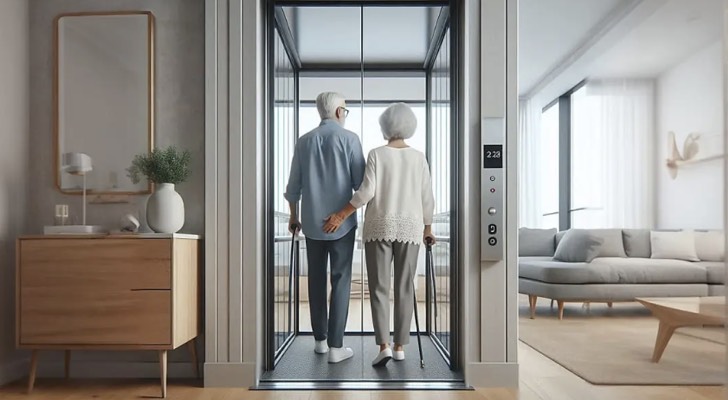
Home elevators are becoming increasingly popular as more homeowners seek to enhance the comfort, accessibility, and value of their homes. Once considered a luxury feature, home elevators are now seen as a practical and stylish solution, especially for seniors, individuals with mobility challenges, or anyone planning for aging in place. These elevators not only provide convenience but also add a modern touch to multi-story homes.
Benefits of Installing a Residential Home Elevator
- Improved Accessibility For individuals with limited mobility, navigating stairs can be difficult and unsafe. A residential elevator provides a safe and easy way to move between floors, allowing people to maintain independence and comfortably stay in their homes for longer periods. It’s particularly beneficial for seniors who want to avoid moving to a single-story home or retirement community.
- Increased Home Value Adding a home elevator can significantly increase the resale value of your property. Potential buyers, especially those with mobility needs, will see the elevator as a highly desirable feature. Homes equipped with elevators often stand out in the real estate market, especially in luxury or high-end housing sectors.
- Convenience and Luxury Even for those without mobility concerns, a residential elevator offers convenience. Carrying heavy items like groceries, laundry, or luggage becomes easier and more efficient. It also adds an element of luxury to your home, giving it a sophisticated, modern look and feel.
- Future-Proofing Your Home As more people choose to age in place, planning for future accessibility becomes essential. Installing an elevator before mobility becomes a concern ensures that you’re prepared for any changes in your or your family’s physical needs. This forward-thinking approach helps prevent future disruptions in your living arrangements.
- Space Efficiency Modern home elevators come in various designs, including compact models that don’t take up much space. They can be installed in small areas, such as closets or unused corners, making them suitable even for homes with limited floor space.
Types of Residential Home Elevators
- Hydraulic Elevators Hydraulic elevators use a piston mechanism to lift the cab. They are known for their smooth ride and quiet operation. These elevators are typically larger, so they require more space and a separate machine room. They are a great choice for homes that need to accommodate heavier loads or more frequent use.
- Pneumatic (Vacuum) Elevators These sleek, modern elevators use air pressure to move the cab between floors. They require no cables or machine rooms, making them an excellent option for homes with limited space. Pneumatic elevators are also energy-efficient and easier to install compared to hydraulic models, though they may be more suitable for lighter loads.
- Traction Elevators Traction elevators operate with cables and counterweights, similar to commercial elevators. They are ideal for homes with more than two or three floors. While they require a separate machine room, they are energy-efficient and have a smooth, quiet operation.
- Winding Drum Elevators These elevators use a drum and motor to wind a cable that lifts and lowers the cab. They don’t require a machine room, making them a good choice for homes where space is limited. However, the ride may not be as smooth or quiet as hydraulic or pneumatic options.
Key Considerations Before Installing a Home Elevator
- Space and Layout Before installing an elevator, evaluate the space available in your home. Compact elevators can fit into tight spaces, but larger models may require more planning and room for installation. It’s essential to consult with an architect or elevator specialist to determine the best location and design for your home.
- Cost The cost of installing a residential elevator varies depending on the type, size, and complexity of the installation. Hydraulic elevators are generally more expensive, while pneumatic elevators may offer a more budget-friendly option. On average, installation costs can range from $20,000 to $50,000 or more, depending on customization and features.
- Maintenance Like any mechanical system, home elevators require regular maintenance to ensure smooth and safe operation. It’s important to consider the long-term maintenance needs and choose a reliable provider who offers servicing and support.
- Aesthetic and Design Home elevators come in various styles and finishes to complement the design of your home. You can choose from glass, stainless steel, wood paneling, and other materials to match your interior décor. Customizable options allow you to blend the elevator seamlessly into your home’s design.
Residential home elevators are more than just a luxury feature—they are a practical, future-proof investment that adds both value and convenience to your home. Whether you’re looking to improve mobility, increase the resale value of your property, or add a touch of modern sophistication, installing an elevator can make life easier while enhancing your home’s overall appeal. With various options to fit different budgets and spaces, there’s a solution for nearly every homeowner.
 © 2024 System1 OpCo, LLC. All Rights Reserved. | Terms | Privacy Policy | Contact Us
© 2024 System1 OpCo, LLC. All Rights Reserved. | Terms | Privacy Policy | Contact Us


